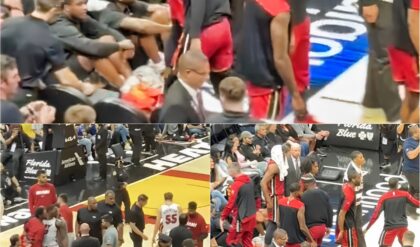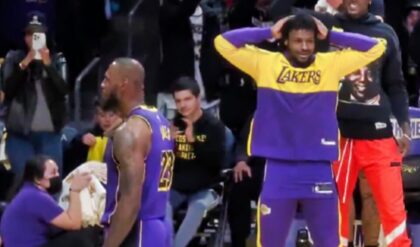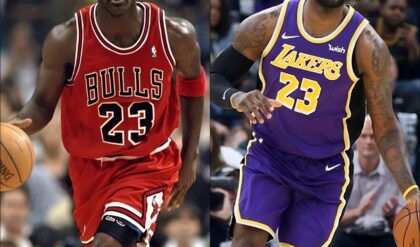The entertainment industry has long been entangled with mysteries, controversies, and power struggles, often concealed from the public eye. In recent times, comedian Cat Williams and rapper-turned-actor Ice Cube have sparked conversations surrounding these topics, with Williams allegedly suggesting that high-powered figures, including Oprah Winfrey, are conspiring to silence him. Known for his fearless and provocative comedy, Williams has accused the entertainment elite, particularly those holding media power, of targeting him for his outspoken nature and refusal to conform to their standards.
Williams, no stranger to conflict, has claimed that powerful figures seek to cancel him because he refuses to be “part of the club.” He hints at knowing too much about the entertainment industry’s hidden mechanisms and being unafraid to expose those secrets. According to Williams, his decision to remain independent of Hollywood’s power structures has put him at odds with influential figures, making him a target for cancellation or even worse repercussions. This “club” he mentions likely refers to a group of individuals wielding power behind the scenes, manipulating careers and media narratives. In the comedian’s view, these gatekeepers can decide who succeeds or fails, creating a system where stepping out of line can end a career.
Adding intrigue to Williams’s claims, Ice Cube recently voiced concerns over Williams’s safety. Ice Cube, who has a long-standing reputation and experience within the industry, suggested that these powerful individuals view Williams as a threat due to his outspokenness and resistance to their influence. His warning to Williams implies that there may be dire consequences for challenging Hollywood’s unwritten rules. Ice Cube’s involvement adds credibility to the theories of a powerful elite controlling the entertainment industry. Known for his candidness, Ice Cube’s open support of Williams raises eyebrows, especially when he mentions that Williams is not alone in facing these challenges.
One of the most intriguing elements of this story is the alleged involvement of Oprah Winfrey. Despite her public image as a media mogul and philanthropic icon, Williams and Ice Cube imply that she may play a role in silencing dissenting voices within the industry. This accusation challenges Oprah’s established persona as an empowering figure, suggesting instead that she might actively protect Hollywood’s powerful elite. Winfrey, who has built an empire on media influence, might indeed have the means to sway public perception and control narratives around certain individuals. However, these claims are, for now, speculative, without solid evidence directly connecting her to any attempt to silence Williams or other artists.
Williams’s story isn’t unique, as other celebrities have reportedly clashed with Winfrey or questioned her influence. Cindy Crawford, for example, recently reflected on an uncomfortable interview with Oprah from decades ago, where she felt objectified and humiliated. This interview resurfaced, reigniting debates about Oprah’s conduct and her seemingly flawless public image.

Similarly, Taraji P. Henson, during her promotional tour for *The Color Purple*, faced speculation of tension with Winfrey, though both women maintain a public image of mutual respect. The resurfacing of these incidents calls into question Oprah’s portrayal as a nurturing media figure, hinting instead at a potential pattern of power struggles between her and other celebrities.
While Williams and Ice Cube’s allegations suggest an elaborate power play in Hollywood, some observers dismiss these as conspiracy theories or misunderstandings of complex industry relationships. The entertainment industry is notoriously competitive, with individuals often stepping on others’ ambitions to secure success. Winfrey’s alleged influence over Williams’s career trajectory, however, presents a darker implication-that those wielding power behind the scenes can ruin lives and careers simply to maintain control.
The broader controversy touches on a persistent issue: whether influential media figures like Oprah, despite their outward philanthropy and empowerment messages, may also exert control to protect their empires. This alleged gatekeeping dynamic, where certain individuals determine who is allowed to thrive or fail, raises ethical concerns about Hollywood’s transparency and fairness. If Winfrey or any other prominent figure actively influences who succeeds in entertainment, it may suggest that power in Hollywood is not solely talent-driven but contingent on compliance with those in control.
The persistence of these rumors, coupled with Williams’s and Ice Cube’s testimonies, paints a complex picture of an industry resistant to criticism. While some may view their claims as paranoia or dramatics, others see these as a call for greater accountability and transparency within Hollywood. After all, an industry that thrives on image and influence may have more secrets than it cares to reveal, leaving the public to wonder who really holds the power in entertainment.






